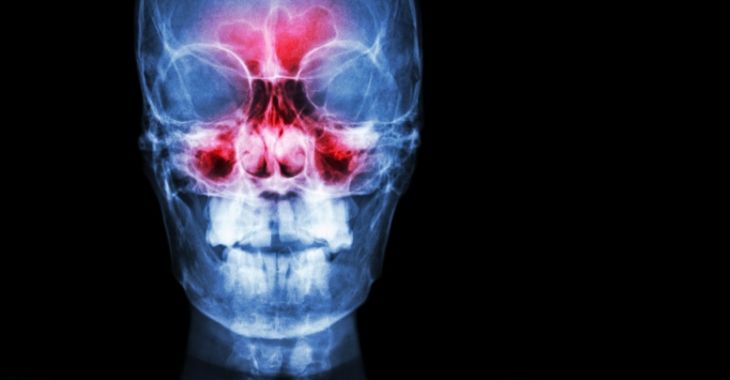Can Sinus Infections Cause Dizziness?

Sinus infections are a common ailment that can cause a variety of uncomfortable symptoms, from congestion and facial pain to pressure behind the eyes. But you may wonder, “Can sinus infections cause dizziness?”
When the sinuses become inflamed, they can impact your inner ear, leading to feelings of imbalance and lightheadedness. Understanding the connection between sinus infections and dizziness is crucial for finding effective relief and restoring your sense of stability.
Understanding Sinus Infections
Sinus infections, or sinusitis, happen when the sinuses—air-filled spaces in the skull—become inflamed. This inflammation is often triggered by infections from viruses, bacteria, or fungi. Sinusitis can cause a wide range of symptoms, including facial pain, pressure, and congestion.
There are two main types of sinusitis: acute and chronic. Acute sinusitis is short-term and often results from a cold or allergies, lasting less than four weeks. Chronic sinusitis lasts longer, often beyond 12 weeks, and may require more intensive treatment to resolve fully.
How Sinus Infections Affect the Body
The sinuses are closely linked to the ear, nose, and throat, which all play a role in balance. When the sinuses are inflamed, they can produce excess mucus, leading to congestion and pressure. This can disrupt the normal function of the ears, which is essential for maintaining equilibrium.
Can a Sinus Infection Make You Dizzy?
Yes, a sinus infection can make you dizzy. When sinus infections lead to congestion and inflammation, the Eustachian tubes, which connect the middle ear to the throat, can become blocked. This blockage can cause a feeling of imbalance or dizziness as the ear’s role in balance is compromised.
The Eustachian tubes help equalize pressure in the middle ear. When these tubes are blocked due to sinusitis, the pressure difference can affect the inner ear’s balance organs. This can result in dizziness, lightheadedness, or even vertigo, making it difficult to maintain your balance.
The Role of the Inner Ear
The inner ear contains structures like the cochlea and vestibular system, which are crucial for hearing and balance. Sinus infections can indirectly affect these structures by altering the pressure in the middle ear, leading to symptoms like dizziness, especially when moving your head.
Other Symptoms Associated with Sinus Infections
Besides dizziness, sinus infections can cause various symptoms such as headaches, facial pain, nasal congestion, and a reduced sense of smell. Some individuals also experience ear pain, a sore throat, or a cough due to postnasal drip, all of which can make you feel unwell.
Sinus Infection Dizzy Feeling: How Long Does It Last?
The duration of dizziness from a sinus infection varies depending on the severity of the infection and how quickly it is treated. In many cases, once the underlying sinusitis is managed and the congestion clears, dizziness should subside. However, persistent dizziness warrants medical attention.
Treatment Options for Sinus Infection Dizziness
Treating the sinus infection is crucial for alleviating dizziness. Over-the-counter decongestants, nasal sprays, and saline rinses can help reduce congestion. In more severe cases, antibiotics may be necessary if the infection is bacterial. Proper treatment of sinusitis can restore your balance.
In addition to medical treatments, several home remedies may help alleviate dizziness associated with sinus infections. Staying hydrated, using a humidifier, and applying warm compresses to the face can reduce sinus pressure. Resting and avoiding sudden movements can also help manage dizziness.
When to See a Doctor
If dizziness persists despite home remedies and over-the-counter treatments, it’s crucial to consult a healthcare provider. Chronic sinus infections or persistent dizziness may require more specialized treatment. Your doctor can assess the underlying cause and recommend the appropriate care.
Your doctor may use a combination of your medical history, a physical exam, and imaging tests like CT scans to diagnose sinusitis and its impact on your balance. Understanding the severity and type of sinusitis can help determine the best treatment to alleviate dizziness.
In some cases, particularly with chronic sinusitis, surgery might be necessary to remove blockages or polyps in the sinuses. Procedures like endoscopic sinus surgery can help improve drainage and reduce the likelihood of infections and associated symptoms like dizziness.
Preventing Sinus Infections
Preventing sinus infections can help reduce the risk of associated dizziness. Avoiding allergens, maintaining good hygiene, and using a humidifier in dry environments can help keep your sinuses clear. Regularly washing your hands and avoiding close contact with sick individuals can also prevent infections.
Making certain lifestyle adjustments can significantly reduce your risk of sinus infections. Avoiding smoking, managing allergies proactively, and using saline nasal sprays can keep your sinuses in good condition. A healthy diet rich in fruits and vegetables also supports your immune system.
The Role of ENT Specialists
Ear, nose, and throat (ENT) specialists play a crucial role in managing complex cases of sinusitis. They can provide advanced treatments and surgical options if needed. If dizziness due to sinusitis becomes a recurring problem, an ENT specialist can offer targeted solutions.

Can a sinus infection cause dizziness? Absolutely. The connection between your sinuses and inner ear means that sinus infections can cause dizziness, especially when congestion affects the Eustachian tubes. Managing sinus infections promptly is essential to alleviate dizziness and other symptoms.
The information provided on this website, including text, graphics, images, and other materials, is intended solely for informational purposes and should not be used as a substitute for professional medical advice, diagnosis, or treatment.




)